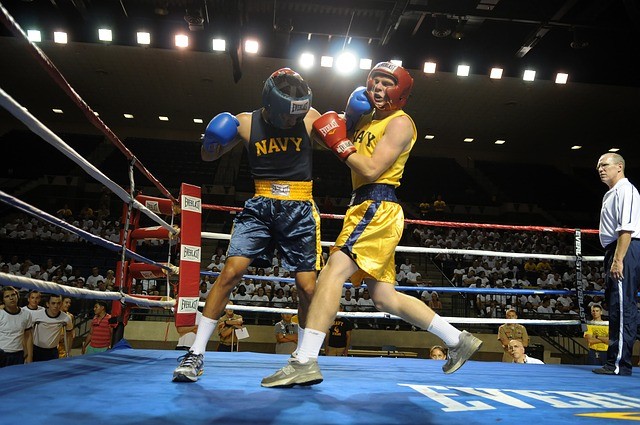A fight between the King and the Secretary of State?

As you most likely know by now, the King decided to only proclaim 11 of the 12 passes referendums.
The one he rejected to pass was
RZ28 – THE ORGANIC LAW AMENDMENT (Provincial Government) BILL #1 OF 2015
The Ziu resolves to amend the Organic Law to add a new section to the end of Article XVII: Territorial Subdivisions of the Organic Law:
No person shall be at the same time Cunstavál of one province and the leader of the provincial government of another province.Uréu q’estadra så: Miestrâ Schivâ – (Senator Fiova)
His argument is as follows:
While it has been our usual habit to allow Amendments to pass into the Organic Law without explicit proclamation by the King — according, I suppose, to the general legal principle that qui tacet consentire videtur —, I have long felt that a more formal adherence to the Law on this point would be better practice. Therefore, since I *may* proclaim the Amendments recently approved, I hereby proclaim all of them except referendum number 3, 47RZ28, which I hereby explicitly refrain from proclaiming even though I am *authorized* to do so.
My reason for NOT proclaiming 47RZ28 is simply that to do so would limit the Crown’s freedom in exercising the Royal Organic prerogative to appoint as Constable — that is, as the Crown’s personal representative to a Province — whomever the Crown pleases. This action is in concert with my general intention vigorously (but always legally!) to defend the Crown’s several privileges and prerogatives.
The thread exploded and generated 257 messages over 5 days.
Miestrâ Schivâ, bill author and renown republican quickly jumped in the ring with the very direct comment:
Ladies and gentlemen, the King just rolled up the will of the Ziu endorsed by the people in referendum and threw it in the circular file.
If he can do this to this amendment, what is to prevent him doing it to any amendment?
John Woolley has just shown that there are no limits to his Royal authority he will respect. This is a constitutional scandal on a level with King Robert I vetoing Ián Anglatzarâ’s citizenship in 2003.
Well might we say “God save the King”, because no-one else will.
Most of the arguments in the thread were in similar nature from citizens in most parties.
Txec Dal Nordselva, former RUMP seneschal quickly pointed out that the bill passed without a single Contrâ vote in the Cosâ, Senate AND a 76 to 15 vote in the referendum. He also quickly pointed out that there are no provisions to override this veto since it isn’t technically a veto.
But perhaps one of the most surprising responses was the 2nd in the Thread, made by Secretary of State of Talossa, Marti-Pair Furxheir, who is both a former RUMP member and a former citizen of the Republic of Talossa:
Just to make this 100% clear, the Chancery is in no way involved in this decision and it is the official position of the Chancery to be outraged at the King’s action to reject the will of the PEOPLE.
This amendment was not just voted by a sufficient margin to override his veto by the ziu but also by a majority of the voters.
And so, Preßeu Zespenat sat down with Sre Furxheir to get to understand his opinion a little more and try to understand why the chancery itself would be outraged:
In my opinion, Talossa has a very complex system of check and balances, perhaps more complex than traditional countries but that’s probably for the best.
For example, like in most countries, the Cosa and the Senate each have a sort of Veto power over the other, and the King over both of them.
This isn’t a banality: in my opinion, the Cosa is there to defend the majority, the Senate is there to defend the provinces and the King is there to protect the population (and not just the majority).
The Cort then serves as a 3rd check over our system to ensure our laws are properly enforced while the Scribe of Abbavilla is there to protect the laws themselves from tampering by, well, anybody.
But the Chancery is also a wall of protection as it protects our voting systems. In a regular house of representatives, the officials often vote verbally, by standing or via remotes which show their votes on a board. In all cases, those votes occur in real time with clear feedback and near impossibility of error.
In our systems, we vote on the Clark over a period of 21 days and on our elections over 15 to 18 days, with citizens voting on Witt, by email and now, using the database system. A few citizens appear for a vote and then disappear back to their usual activities, unable to review if their vote was properly accepted and processed.
As such, the Chancery is in sort the guardian of the voice of the people and the government. It is there to ensure that the Cosa members, Senators and voters are heard. Then their will isn’t ignored.
When the King refused to proclaim 47RZ28, he in a way, stepped over that duty of protection, and I felt obligated to step in, if only in the name of the voters who massively approved the referendum.
Granted, if the organic law does allow for such a non-signature, the King might indeed have such a last minute protection right, and if it’s the case, then it would figure within his own prerogatives to act.
After all, I see that anything that an official CAN do (but is not obligated to do) as a responsibility to protect against abuse by someone else and if he does have such an option then he would give him an obligation to reject any act he feels hurt the population.
And so, we arrive to the core of the problem. I strongly believe in Issue Politics: that politics should be solved one issue at a time. I am Canadian after all, the country which was for decades renown for it’s Issue Politics approach to international relations. This notably means that despite all my outrage at the King, it is only an outrage related to this particular issue and I have had no problem working with him in forming the electoral commission.
My problem is that the King played Power Politics: the idea that every issue is just a tool in a constant fight for supremacy or protection. In this case, the King didn’t refuse to vote this bill because the bill itself was bad, but because it reduced, ever so slightly his powers as King. I could insert a snide remark that the US is one of the countries that plays amongst the most extreme versions Power Politics, but that wouldn’t be really fair. Instead, I’ll admit that a follow-up of the King on Wittenberg intriged me.
The King, a strict legalist (something I can admire) claims to have seen this “non-proclamation” well in the past and in way, insinuates that he rejected this particular bill as a way to put the “non-proclamation” right in the foreground.
If it’s the case, the King picked his bill very carefully since between you and I, it is a bill of little importance in day to day life.
If it is indeed the case, when we amend the constitution to either remove or restrict this right, the King will let it pass and all will be forgiven, at least, in my eyes.
After all, we are all here to make Talossa a better country and the King might have just help us fix a possible time bomb left by the previous monarch…
What are YOUR reactions to this event? Leave a comment below or write a reply article!
